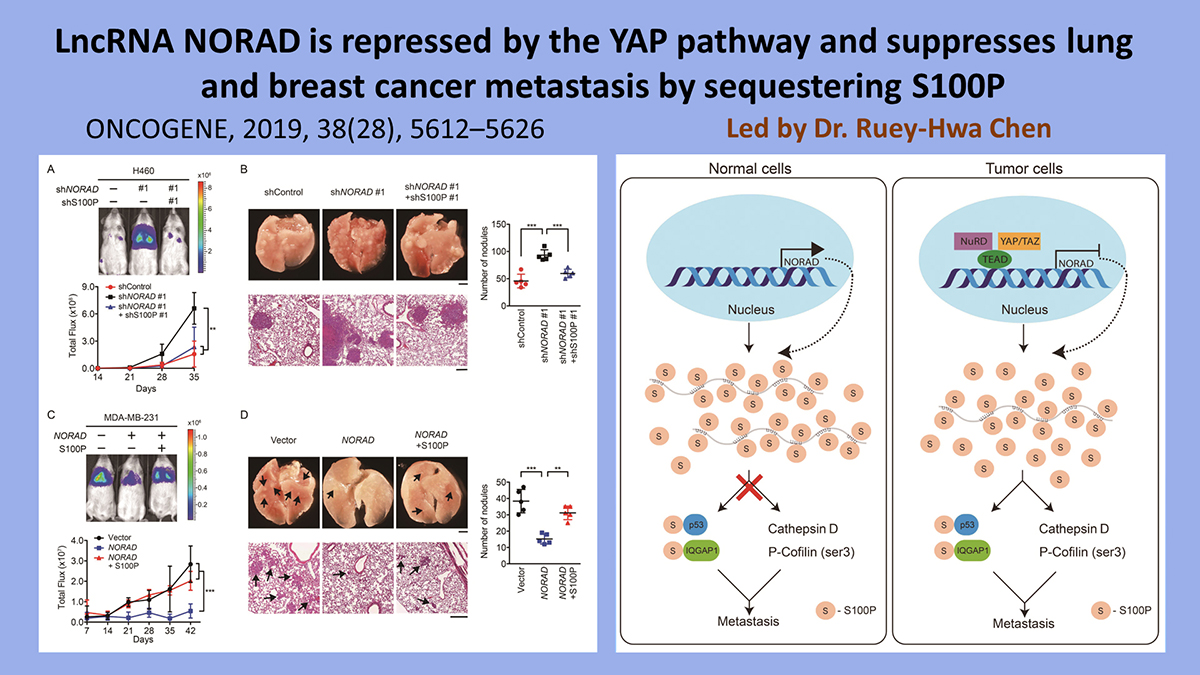
 中央研究院 生物化學研究所
中央研究院 生物化學研究所
Metastasis is responsible for most cancer mortality, but its molecular mechanism has not been completely understood. In addition to coding genes and miRNAs, the contribution of long noncoding RNAs (lncRNAs) to tumor metastatic dissemination and the mechanisms controlling their expression are areas of intensive investigation. Here, we show that lncRNA NORAD is downregulated in lung and breast cancers, and that NORAD low expression in these cancer types is associated with lymph node metastasis and poor prognosis. NORAD is transcriptionally repressed by the Hippo pathway transducer YAP/TAZ-TEAD complex in conjunction with the action of NuRD complex. Functionally, NORAD elicits potent inhibitory effects on migration and invasion of multiple lung and breast cancer cell lines, and repression of NORAD expression participates in the migration- and invasion-stimulatory effects of the YAP pathway. Mechanistically, NORAD exploits its multiple repeated sequences to function as a multivalent platform for binding and sequestering S100P, thereby suppressing S100P-elicited pro-metastatic signaling network. Using cell and mouse models, we show that the S100P decoy function of NORAD suppresses lung and breast cancer migration, invasion, and metastasis. Together, our study identifies NORAD as a novel metastasis suppressor, elucidates its regulatory and functional mechanisms, and highlights its prognostic value.
